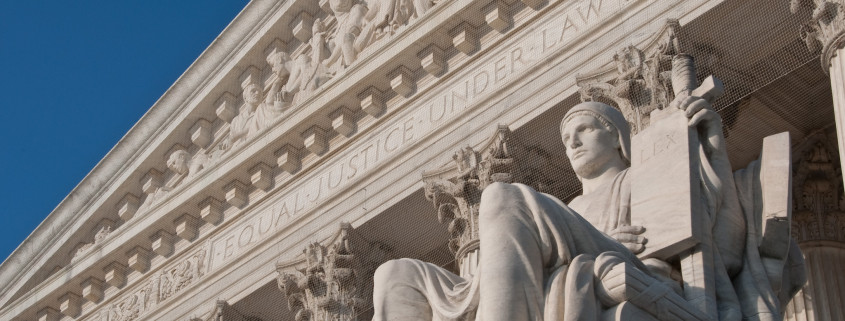Supreme Court May Consider National Gay Marriage Equality – What Does This Mean For Foreign Immigrant Same-Sex Spouses?
By Julie Oliver-Zhang, Esq. & Amanda Utterback, J.D.
Next week, the United States Supreme Court will decide whether it will weigh in on the validity of a national constitutional right to same-sex marriage. While the implications of this decision for gays and lesbians in America are immediately apparent, it is also important to understand its significance to the global LGBT community.
Currently, a minority of states recognize legal gay marriage. This dramatically limits the immigration options for LGBT clients. For instance, same-sex spouses from other countries are unable to apply for a green card or non-immigrant visas in America, unless the couple was married in one of the 19 states, the District of Columbia, or a foreign country that recognize same-sex marriages.
Specifically, eight states have legalized same-sex marriage through court decisions (California, Connecticut, Iowa, Massachusetts, New Jersey, New Mexico, Oregon, and Pennsylvania); eight through legislation (Delaware, Hawaii, Illinois, Minnesota, New Hampshire, New York, Rhode Island, Vermont, and the District of Columbia); and three have legalized same-sex marriage by popular vote (Maine, Maryland, and Washington).
However, even if the Supreme Court decides on Monday to not review any of the five marriage equality cases requesting certiorari, Lyle Denniston, advisor at the National Constitution Center, notes that the silent assent would increase the number of states recognizing legal same-sex marriage from 19 to 30 states. This would broaden the accessibility and availability of federal immigration benefits to more international gay and lesbian fiancés and spouses.
But, the Supreme Court’s potential refusal to review the cases can prolong the denial of fundamental rights to gays and lesbians, such as the parental rights to step-children, immigration benefits, or simply being allowed on the same lease. LGBT supporters agree that the simple act of delaying a consistent legal standard on gay marriage causes real harm to gay couples.
The Supreme Court has a chance to end the prejudicial bans on legal same-sex marriage in states that continue to discriminate against gay, lesbian, bisexual, and transgender couples. One of the global consequences of the Court recognizing a national constitutional right to marriage equality would be that same-sex couples across America will finally be able to enjoy the same immigration benefits afforded to all other American citizens, without having to decide which state they must travel to in order for the federal government to recognize their marriage and issue the foreign spouse a green card if their home state is not a same-sex marriage state.
As new laws and legal issues regarding gay immigration rights continue to evolve, the LGBT attorneys at Oliver-Zhang Law are able to assist in legalizing same-sex immigration status. Please contact us today for a free consultation.




Leave a Reply
Want to join the discussion?Feel free to contribute!